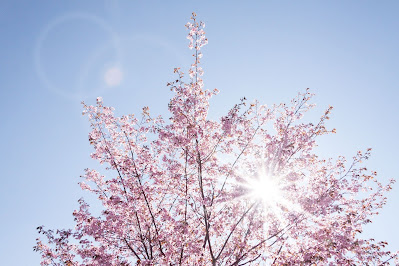I have a ceramic measuring cup that I adore. It's hand-painted, adorable, and it makes me happy when I use it. I saw the same one in a rental house years ago, and loved it so much I hunted down my own when we finally bought a house.
Then it broke.
One fateful dish-washing incident and it was broken into 10 different pieces of varying sizes. I can't bring myself to throw it away, but I know if I fix it with my tried and true method of choice (Krazy Glue) it will no longer be food safe to use for cooking, so the pieces have been patiently sitting on a shelf in my dining room for the past year waiting for me to figure out what to do with them.
Buying a new one seems wasteful. And so I've started considering the art of Japanese Kintsugi.
I'll admit I don't know a whole lot about it yet beyond what the average European-American white girl can learn via Google. But over the years I've seen and read little tidbits here and there about the process and the purpose, and it's become a beautiful concept to me.
Kintsugi takes broken things and doesn't shy away from their brokenness. On a surface level, it's the act of using a gold powder epoxy to mend broken pottery, ceramic, and porcelain. This serves to fix the object, but also draws attention to the crack, gilding it and making it a new and beautiful element of the piece.
On a deeper level, Kintsugi shows us a new philosophy on what we view as "damaged goods". The damage isn't hidden, it isn't tucked away and disguised in the hopes that no one sees it. The damage has happened, the cup is broken, and that's the reality of it's history. One article I've read refers to the cracks as "precious scars" and that description carries so much meaning. Painting them with gold and giving those scars honor isn't what the societies I live in are accustomed to. There's an honesty in it which I think is frightening to many of us.
As a teenager, I attended youth group retreats a few times a year with other students whose families all attended my church. All year long I'd see the adults in these families dressed up nicely, speaking politely, showing their 'best' selves on Sundays within the walls of the church. If these families had cracks, they tucked them into the fold of a dress or a pleated pant and hoped they weren't visible.
My own family was no different. We may have had a horrible morning, arguing or crying or feeling depressed, but when we walked through the double glass doors into the church, we hit an invisible pause button on all of it for two hours. It just - stopped. We knew those uglier sides of our relationships with each other and with ourselves didn't belong here, so we put those parts on hold until we exited back into the parking lot, squinting from the sun bouncing off the pavement and the glare of the emotions that waited for us there.
But on youth retreats, I saw something different. During a tradition we called Vespers, we gathered in a small stone amphitheater on a darkened forest hill, and students would take turns standing, and sharing from the safety of the darkness all their most precious scars. They shared their fear for a loved one battling alcoholism, or their regret over a betrayal of a friend, or their hopelessness over a battle with anorexia, depression, drug use, self-harm. They shared about the battles that raged within their walls at home with divorcing parents or out of control siblings. They gave voice to the cracks, one by one, and it bonded us in a way we grew to wait for with anticipation every retreat.
It wasn't the specifics of what was shared that bonded us - each scar was unique and complicated and painful. It was the authenticity and honesty of bringing those scars into sight, calling them by name, and allowing them a place in the overall story of who we are. To know the breaking that had happened in someone's life made them all the more beautiful to know, and gave us greater respect for each other.
We are so afraid of judgement for our imperfections, for our history of cracks where we've been dropped a time or two. But these imperfections are part of what makes us these uniquely beautiful beings called humans. They're the one thing that unites us all as people - not a one of us is perfect. Churches, communities, holy spaces - they shouldn't have a pause button at the door where we leave the reality of our lives and experiences at the door. We shouldn't tuck our chipped edges behind a pretty dress or turn our cup backward so the cracks face the wall.
Kintsugi has it right - these things we've been through, the damage and wear and tear of life, they are a part of us and nothing to be ashamed of. If we've been pieced back together from a tragic fall, that's something to be proud of, something to honor and celebrate and elevate. Scar tissue is a remnant of healing, a sign of strength. Gild yours in gold, and let it be seen by the world. It makes you a work of art.






















